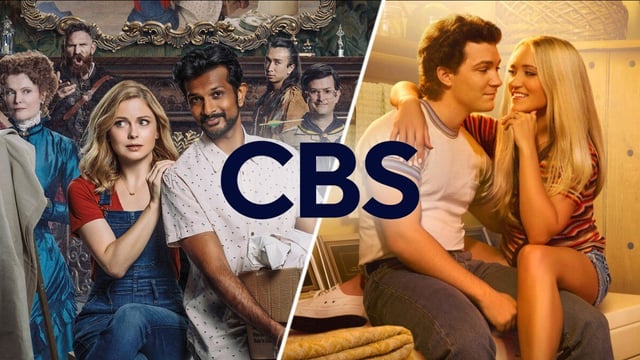
The Hauntingly Successful Formula: CBS's Bet on Ghosts
In a television landscape increasingly dominated by fleeting trends and the ephemeral nature of streaming, the announcement that CBS has renewed "Ghosts" for two more seasons feels not just like a triumph, but a testament to the enduring power of genuine heart and cleverly executed humor. It's a vote of confidence in a show that has managed to transcend its seemingly niche premise – a young couple inheriting a haunted house – and become a surprisingly mainstream hit, proving that sometimes, the best stories are the ones that are a little bit… well, dead.
"Ghosts" isn't a show that screams cutting-edge innovation. In fact, its foundation is built on familiar sitcom tropes: the culture clash, the endearing underdog, the bumbling but lovable ensemble cast. However, it’s in the masterful execution of these tropes, combined with a genuinely inventive premise and a cast brimming with chemistry, that "Ghosts" finds its magic. The show avoids the cynical snark that pervades much of contemporary comedy, opting instead for a genuine warmth that resonates with audiences weary of negativity. This is a show that celebrates connection, even across centuries and realms of existence.
The genius of "Ghosts" lies in its ensemble cast. Each ghost, trapped on the Woodstone B&B property, is a perfectly realized character, embodying a different era and personality. From Hetty, the prudish and prejudiced Victorian lady, to Thorfinn, the Viking warrior perpetually confused by modern technology, the ghosts are not mere caricatures, but complex individuals with their own backstories, regrets, and desires. The writers expertly weave their individual narratives into the overarching plot, creating a tapestry of intertwined lives, both living and spectral.
Beyond the comedic brilliance, "Ghosts" possesses a surprising depth. The show subtly explores themes of family, acceptance, and the enduring power of human connection. The ghosts, unable to move on, are forced to confront their past mistakes and learn to live (or, rather, exist) alongside each other, forging unexpected friendships and rivalries. This forced proximity allows for moments of genuine emotional resonance, as the characters slowly peel back the layers of their personalities and reveal the vulnerabilities that lie beneath.
Furthermore, the renewal of "Ghosts" speaks to CBS's strategic understanding of its core audience. While streaming services chase the elusive youth demographic, CBS has consistently catered to a broader audience seeking wholesome entertainment that doesn't shy away from intelligent humor. "Ghosts" fits perfectly into this mold, offering a family-friendly show that is both funny and heartwarming, attracting viewers of all ages. The show's success is a reminder that traditional television still has a vital role to play in our entertainment landscape.
Of course, the success of "Ghosts" is also a testament to the power of adaptation. The American version is based on a popular British series, demonstrating the universality of the show's themes and the ability to translate comedic concepts across cultures. The American adaptation has, in many ways, surpassed its predecessor, building upon the foundation laid by the original and crafting its own unique identity.
In conclusion, the renewal of "Ghosts" for two more seasons is more than just a vote of confidence; it's a validation of a unique and successful formula. The show has managed to carve out a space for itself in a crowded television landscape by offering a genuinely funny and heartwarming experience, filled with memorable characters and surprisingly poignant moments. It's a reminder that sometimes, the best stories are the ones that embrace the past, celebrate the present, and look forward to a future filled with…well, perhaps a few more ghosts. The hauntingly successful formula of "Ghosts" is proof that sometimes, the undead can breathe new life into the world of television.
